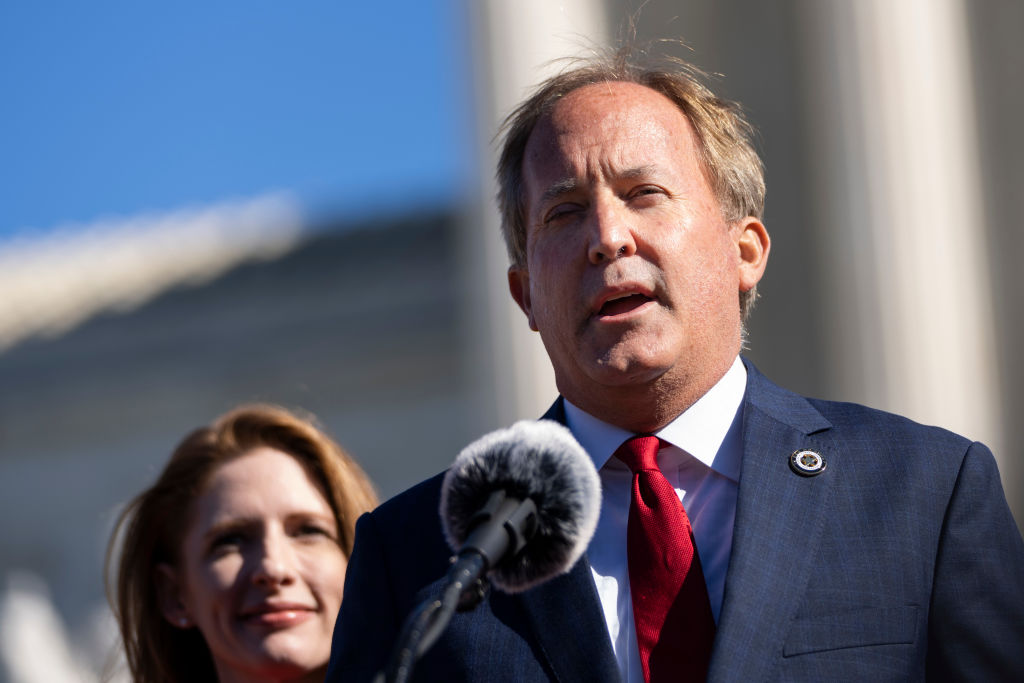Texas Supreme Court rejects challenge to abortion ban


A free daily email with the biggest news stories of the day – and the best features from TheWeek.com
You are now subscribed
Your newsletter sign-up was successful
The all-Republican Texas Supreme Court rejected a challenge to the state's Heartbeat Act, which bans abortion after about six weeks of pregnancy, on Friday, The New York Times reported.
Steve Vladeck, a law professor at the University of Texas, wrote on Twitter that the court's decision "closes the last back door" against legal challenges to the law by abortion providers.
Per the Times, the Heartbeat Act was designed to escape judicial review in federal courts, as abortion bans before the point of fetal viability — around 23 weeks — are considered unconstitutional under Roe v. Wade (1973). The Texas law empowers private citizens to sue anyone who "aids or abets" a woman in obtaining an abortion. Therefore, the Texas Supreme Court ruled, government and medical licensing officials cannot be sued over the law because they play no role in enforcing it.
The Week
Escape your echo chamber. Get the facts behind the news, plus analysis from multiple perspectives.

Sign up for The Week's Free Newsletters
From our morning news briefing to a weekly Good News Newsletter, get the best of The Week delivered directly to your inbox.
From our morning news briefing to a weekly Good News Newsletter, get the best of The Week delivered directly to your inbox.
Commentators across the political spectrum have expressed concerns about the enforcement mechanism. Hannah Cox of the right-libertarian Foundation for Economic Education tweeted that the same legal workaround could be used to threaten "gun rights across the country & any number of other civil liberties."
Texas Attorney General Ken Paxton, however, tweeted that the court's decision is a "major victory" and that the law "has saved thousands of unborn babies."
A New York Times analysis published Sunday suggested that, even after factoring in out-of-state abortions and abortion pills delivered by mail, the number of abortions among Texas women has likely fallen by about 10 percent since the law took effect in September.
Michael New, a business professor at the Catholic University of America, suggested in National Review that the drop could be more drastic because the studies cited by the Times assumed every woman who obtained abortion pills carried out an abortion. "Some women," he argued, "might have simply wanted to have abortion pills available in the event of a future unplanned pregnancy."
A free daily email with the biggest news stories of the day – and the best features from TheWeek.com
Grayson Quay was the weekend editor at TheWeek.com. His writing has also been published in National Review, the Pittsburgh Post-Gazette, Modern Age, The American Conservative, The Spectator World, and other outlets. Grayson earned his M.A. from Georgetown University in 2019.
-
 At least 8 dead in California’s deadliest avalanche
At least 8 dead in California’s deadliest avalancheSpeed Read The avalanche near Lake Tahoe was the deadliest in modern California history and the worst in the US since 1981
-
 Political cartoons for February 19
Political cartoons for February 19Cartoons Thursday’s political cartoons include a suspicious package, a piece of the cake, and more
-
 The Gallivant: style and charm steps from Camber Sands
The Gallivant: style and charm steps from Camber SandsThe Week Recommends Nestled behind the dunes, this luxury hotel is a great place to hunker down and get cosy
-
 Witkoff and Kushner tackle Ukraine, Iran in Geneva
Witkoff and Kushner tackle Ukraine, Iran in GenevaSpeed Read Steve Witkoff and Jared Kushner held negotiations aimed at securing a nuclear deal with Iran and an end to Russia’s war in Ukraine
-
 Pentagon spokesperson forced out as DHS’s resigns
Pentagon spokesperson forced out as DHS’s resignsSpeed Read Senior military adviser Col. David Butler was fired by Pete Hegseth and Homeland Security spokesperson Tricia McLaughlin is resigning
-
 Judge orders Washington slavery exhibit restored
Judge orders Washington slavery exhibit restoredSpeed Read The Trump administration took down displays about slavery at the President’s House Site in Philadelphia
-
 Hyatt chair joins growing list of Epstein files losers
Hyatt chair joins growing list of Epstein files losersSpeed Read Thomas Pritzker stepped down as executive chair of the Hyatt Hotels Corporation over his ties with Jeffrey Epstein and Ghislaine Maxwell
-
 Judge blocks Hegseth from punishing Kelly over video
Judge blocks Hegseth from punishing Kelly over videoSpeed Read Defense Secretary Pete Hegseth pushed for the senator to be demoted over a video in which he reminds military officials they should refuse illegal orders
-
 Trump’s EPA kills legal basis for federal climate policy
Trump’s EPA kills legal basis for federal climate policySpeed Read The government’s authority to regulate several planet-warming pollutants has been repealed
-
 House votes to end Trump’s Canada tariffs
House votes to end Trump’s Canada tariffsSpeed Read Six Republicans joined with Democrats to repeal the president’s tariffs
-
 Bondi, Democrats clash over Epstein in hearing
Bondi, Democrats clash over Epstein in hearingSpeed Read Attorney General Pam Bondi ignored survivors of convicted sex offender Jeffrey Epstein and demanded that Democrats apologize to Trump
